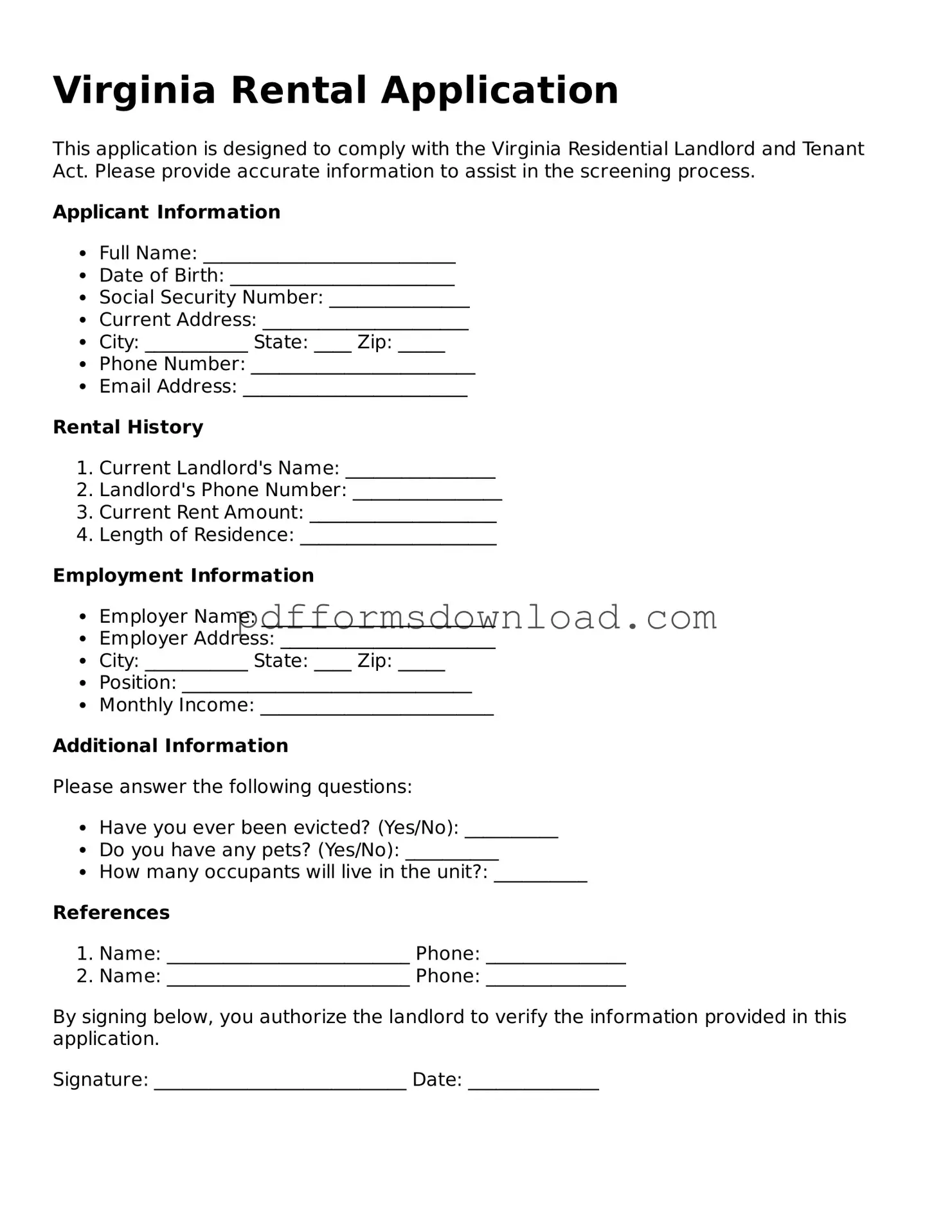Printable Virginia Rental Application Form
The Virginia Rental Application form is a document used by landlords to collect essential information from potential tenants. This form helps landlords assess the suitability of applicants for rental properties. Understanding how to fill it out correctly can streamline the application process and improve your chances of securing a rental.
Ready to get started? Fill out the form by clicking the button below.
Make This Document Now

Printable Virginia Rental Application Form
Make This Document Now

Make This Document Now
or
Free PDF File
Your form is almost ready
Complete your Rental Application online — edit, save, and download easily.